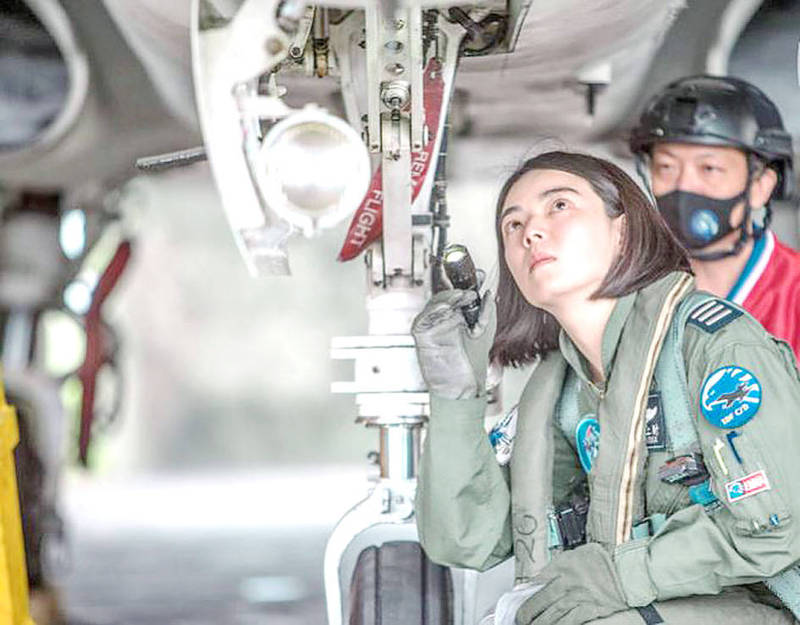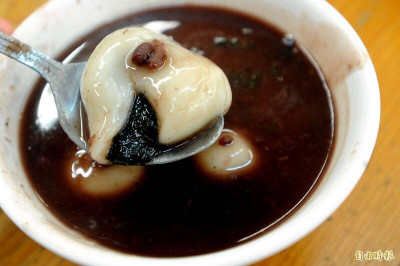《TAIPEI TIMES》 Female fighter pilots strengthen Taiwan’s defense

Air force Captain Guo Wen-jing inspects an Indigenous Defense Fighter jet in an undated photograph. Photo courtesy of Military News Agency
/ Staff writer, with CNA
An interview with female air force pilots in Taiwan published by the UK’s Telegraph newspaper on Sunday highlights their strong willpower, responsibility and resilience as female fighter pilots, despite facing increasing Chinese military threats.
The report interviewed 34-year-old Captain Guo Wen-jing (郭文靜) and 33-year-old Major Hsieh Yun-ting (謝蕓梃), who are the air force’s fourth and third fighter pilots respectively.
Guo studied business management at university and briefly considered working in a bank after graduation, but at the age of 22, she was drawn to the challenge of enlisting in the military, particularly in aviation, the report said.
The promise of a steady wage cemented her decision, as she had hoped to support her family in covering expensive late-stage cancer treatments for her late father at the time.
“I thought: If the boys can do it, then girls can, too… I didn’t even tell my family what I was up to until the morning I was assigned to report for duty,” the newspaper cited her as saying.
During her childhood, Hsieh often watched planes taking off and landing at a nearby airport and military air base in Kaohsiung, and she now trains future fighter pilots on AT-3 trainer aircraft.
“I wondered if perhaps someday I could fly one of those planes,” the report cited her as saying.
On her first solo flight, she said she looked behind in the plane, not convinced that she was flying alone without an instructor, but she told herself “you got this” and succeeded, because she believed in herself, the report cited her as saying.
Days usually begin at about 5am for Guo and Hsieh, but sometimes they can start as early as 3am.
Other than their military duties, they need to manage their responsibilities at home — Hsieh is a mother of two children, aged seven and five.
As women comprise only about 15 percent of active-duty personnel in the military, and most female pilots end up flying transportation planes, there are only 20 female fighter pilots, the report said.
There were so few women when they started their pilot training about a decade ago, that “our officers placed us under a magnifying glass — at least, that’s what it felt like,” Guo was cited as saying.
Recruiting has not been easy in Taiwan, as the military’s public image has long been associated with repression, due to the history of martial law until 1987, so Guo’s two older brother still tease her for becoming a soldier and are not interested in enlisting themselves, it said.
However, Guo and Hsieh’s sense of accomplishment from having joined the elite ranks of the air force cannot be replaced, it reported.
Beijing commands six times as many warplanes as Taiwan and has increasingly sophisticated aircraft, so as tensions rise over a potential invasion of Taiwan, Guo and Hsieh might one day be at the forefront of a war with China, the report said.
Facing Beijing’s military advantages, the female fighter pilots have shown how to stay calm during their missions to intercept Chinese aircraft, as well as demonstrating determination to defend Taiwan, it added.
新聞來源:TAIPEI TIMES
















